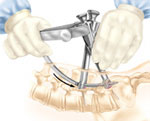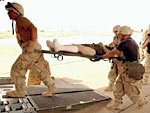Tip sheets highlight timely news and events at Washington University in St. Louis. For more information on any of the stories below or for assistance in arranging interviews, please see the contact information listed with each story.
‘Couch baboons’
Primate study suggests lack of exercise plays greater role than diet in obesity and diabetes

Investigators from several groups, including Washington University in St. Louis, have found that when it comes to risk of obesity, the food you eat may be less important than the exercise you get. The researchers studied the eating and exercise patterns of two groups of wild baboons in East Africa. Like most primates, one group has to wander and forage for food. The other group lives near a tourist lodge in Kenya; they get lots of their food from the garbage dump. Typically, baboons spend the majority of their day walking from place to place finding food. But the so-called “couch baboons” spent most of their day waiting for food to arrive at the dump and then eating that food. Some of those baboons also became obese and resistant to insulin, just like humans who eat too much and exercise too little.
Genes and kicking the habit
Genes contribute to withdrawal symptoms as smokers try to quit

Researchers at Washington University School of Medicine in St. Louis have uncovered evidence linking genetic influences to nicotine withdrawal symptoms that commonly occur when a smoker attempts to quit. Their findings also indicate that genetic factors both related and unrelated to nicotine withdrawal may affect attempts to quit smoking. The team, led by Hong Xian, Ph.D., research assistant professor of medicine at Washington University School of Medicine and researcher at the St. Louis Veterans Affairs Medical Center, found that genetic influences accounted for 54 percent of failures to quit smoking, and that about one-third of such failures could be attributed to the severity of nicotine withdrawal symptoms.
Pain in the Back
Minimally invasive back surgery technique reduces pain and blood loss

Back surgery — typically an intimidating prospect fraught with tales of post-operative pain — is being performed with less pain, less blood loss and fewer days recovering in the hospital, thanks to a combination of minimally invasive surgical techniques. According to Neill M. Wright, M.D., assistant professor of neurological surgery at Washington University School of Medicine in St. Louis, the School of Medicine is one of the few centers in the country using this combination of techniques, but promising results may inspire others to follow suit. Spine surgeons have been trying to limit post-operative pain from back surgery using the same ideas that made gallbladder and knee surgeries less invasive.
Losing a little helps a lot
As obesity problems grow, physicians take long-term approach to treatment

Almost two-thirds of Americans are either overweight or obese, and that figure is growing — both in size and number. People with medically significant obesity have a body weight that is more than 20 percent above normal. The reason it is called medically significant obesity is that weighing that much puts people at risk for heart disease, diabetes, stroke, high blood pressure and cancer. It also decreases quality of life. Researchers at Washington University’s Weight Management Center help patients lose weight safely and reduce long-term risks of obesity-related diseases by taking a long-term approach. Because obesity is a chronic disease, they believe short-term therapy will not be effective. Just as physicians would not want to treat a diabetic with insulin for four months and then stop the therapy, they say that beating obesity often requires continual care.
Wartime medicine

Washington University in St. Louis offers faculty experts who can comment on breaking news issues related to the war in Iraq, terrorism and other related topics, including such areas as presidential war rhetoric; national security; bioterrorism; economic and financial implications of war; and the history of anti-war and peace movements.